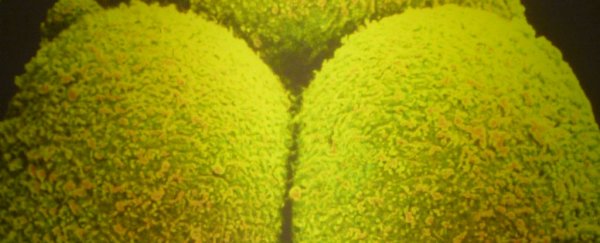The Southern University of Science and Technology in Shenzhen, China, has released an official statement distancing itself from the work of geneticist He Jiankui, who is employed at the institution as an associate professor.
He stunned the world yesterday when, in an interview with the Associated Press, he claimed that he had edited the genes of human embryos using CRISPR, and that those babies - twin girls - were born a few weeks ago.
The embryos, apparently, were healthy; He claims that they were edited to knock out a gene called CCR5, which is implicated in HIV.
"I feel a strong responsibility that it's not just to make a first, but also make it an example," He told the Associated Press. "Society will decide what to do next."
The problem? Most countries around the world have strong regulations against bringing to term human embryos that have been edited using CRISPR. If He's claims are true, this is the first time it has been done - and it seems to have been done without permission or oversight.
So the Southern University of Science and Technology doesn't want a bar of it.
In a brief statement on its website, the university noted that He, who has been on leave since February of this year, did not perform the work at the university, or during university hours. Nor was the university or its biology department aware of the work.
"The Southern University of Science and Technology strictly requires scientific research to abide by and comply with international academic ethics and academic norms in accordance with national laws and regulations," the statement reads.
It is immediately hiring objective third-party experts to launch an investigation into He's claims.
It is worth noting that the research has not been published in an academic paper, nor verified independently, and neither will He reveal the identity of the babies, although an online form seems to indicate the work was approved by an ethics committee last year.
In spite of that form, other institutions are also trying to distance themselves. As the BBC reports, the hospital associated with the claim has also denied any involvement.
And, although the form names the Southern University of Science and Technology as a sponsor, the university does not at this time agree with the ethical approval granted the project.
"For Associate Professor He Jiankui to use genetic editing technology for human embryo research," the statement reads, "the Academic Committee of the Department of Biology believes that it seriously violates academic ethics and academic norms."
